|
Writing is a huge and complex beast. Harry Bingham once said the trouble with writing, unlike visual art, is that you can’t take a glance at the finished product. You can look at all the details independently. You can get a sense of what’s happening at the word, sentence, or paragraph level. You might even be able to visualize a whole chapter at once, if you’ve got half an hour.
But you can’t just sit back and easily take in an entire piece of writing like you can, say, a painting or a sculpture. For this reason, I can spend quite a lot of work time staring out into space, trying to visualize stories in my mind. (Yes, I'm still working when I do that. Without the thinking, the writing would never happen.) I freewrite in my handy-dandy Rocketbook. I use notecards or my trusty writing software, Dabble, to shuffle things around. I make spreadsheets where I map out word counts, timelines, and whose perspective we’re following. But, sadly, I can't get a really good look at the piece without reading the whole of it. And that takes time. One of the hardest things for me has always been figuring out where to start. And I guess that's because the story's always happening. Life (even fictional characters') is a film that's constantly rolling, and it's hard to know at what point to let the viewer - er, the reader - in. Too early, and they might lose interest. Too late, and they might get confused. Here are some sample beginnings from an essay I wrote. I was picking up speed and about to merge onto the highway. I looked over my shoulder to assess the oncoming traffic. Big 18-wheeler in the second lane, but the first was clear. Easy peasy. Except when I turned to face forward, everything went black. Nope. We're already into the action here, and there's some crucial background left out. What happened before everything went black? Why did it go black? In a book, some writers will use a scene like this as a prologue, starting in the middle to get readers intrigued before going back to the beginning and showing what was happening. But for the story I was trying to tell, this got into the action a little too quickly. Back in high school, I used to wake up with a stabbing pain in my gut. My doctors couldn't figure out what it was, even after about a dozen tests. One doctor even prescribed antidepressants, in an effort to see if decreasing my stress level would help. (Spoiler: it didn't.) Bo-ring! This is good background, but if you don't know me, you aren't likely to care too much about this background. It can easily be peppered into the actual story in a way that doesn't bore the reader. I needed something in the sweet spot between providing so much background that the reader gets bored and stops reading before the story really gets going, and thrusting them into a scene that's compelling but confusing because they don't have enough information to make sense of it. Finding this balance has been the absolute bain of my existence for as long as I've been a writer and storyteller. I think I've gotten better over time, but that doesn't mean I'm any good at it. Here's that essay. I'd love to know what you think about how I ended up beginning it. Ping me in the comments and let me know! Oh, speaking of endings. That's another troublesome one for me. Stay tuned for more on that.
0 Comments
School is back in session, and with it comes a Rorschach of emotions that seem harder to process the more I think about them.
There’s the normal uncertainty that comes up when we send our kids out into the world. Will my kids be challenged? Will they get the support they need? Will their teachers be effective yet also have the right personality to keep the kids engaged and feeling safe? Will they learn what they need to learn? Will they be good friends and nice classmates? But this year, there is so much more than that. This year, all the usual suspects are joined by a low-level fear that I don’t see going away anytime soon. Will my kids get sick at school? Will they bring sickness home and get one of us, or their baby brother, sick? Will it spread to our family members and friends who are medically compromised? A haze of illness is dripping off everything around us, and rather than trusting that we can work together as a community to protect ourselves and each other, we’re in a place where we can’t trust the people around us to simply do the right thing. Suddenly, taking basic measures to protect the entire community has become secondary to some individuals' "right" to do whatever they please. I don't have to tell you about the people all over the country bucking against any kind of protective measure that keeps their friends and neighbors safe. I don't have to remind you, either, that infections and deaths from COVID-19 continue to rise. You might even not need me to share this gruesome statistic that stopped me mid-guzzle yesterday morning as I tried to mainline as much caffeine into my body as possible and tread in the existential dread long enough to parent my children. Yet, somehow, health and science have become "politics." Basic human courtesy is an "agenda." We can't bring ourselves to actually give a damn about anyone else, because we are so wrapped up in value judging them based on what we presume to be their political inclination. Here's what I want to say to all the people who fly their Feedumb Flag as an excuse to be abhorrent human beings who can't be bothered to exercise basic human decency because Politics. Put yourself at risk all you want. By all means, congregate with other future COVID death statistics, packed like salty, recirculated-droplet-breathing sardines in the windowless dining room of your favorite burger joint. Let this disgusting brand of individualism you hold so dear infect you and your cronies from the inside out. But leave my kids the hell out of it. "Only 400 children have died from COVID," I heard at a school committee meeting the other day. The capacity of my kids' school is 350. Picture every desk in your child's school, and every car in the parking lot, occupied by a child who died of COVID. Are you sure that's a statistic you want to use to corroborate your stance? "Children rarely get sick from COVID," I've heard. Without even going into the fact that the Delta variant has a higher infection rate among children, this claim misses the mark. I'm worried about my children, yes. I'm concerned they'll get sick, and I'm concerned they'll have long-lasting symptoms we haven't yet discovered. But, also, if my kids carry around the virus, whether or not they get sick, they can pass it along to someone else - like the many people in our lives who are medically compromised. And that's not to mention the disruption to learning that comes when students have to be sent home and/or quarantined because they've either been in class with someone with the illness, or because they have a symptom that appears on the laundry list of possible COVID indicators. I am so appalled by the willingness of people to use their children as pieces in this poorly-conceived game in which we've all engaged ourselves. People are so quick to follow their political party in what should be a commonsense public health decision, and it infuriates me. By virtue of living in an organized society, we have agreed to work toward the collective good. I could see where this might be tricky if the collective good is in opposition to a person's individual success. But following basic decency and simple public health precautions is in everyone's best interest. Sure, we all have our own individual freedoms. But when exercising that freedom, it's each individual's responsibility to be sure we're not negatively affecting those around us. I shouldn't have to worry every day that my neighbor's risky behavior is going to put my family at risk. But I do. And until everyone is willing to make this conversation, grounded in facts and science, that has nothing to do with politics and everything to do with basic human decency and the common good, that's not going to change. There is a saying I've heard many times over the years: If everything's important, nothing's important.
It rings true. It really does. But the problem comes when there are enough things that actually are important that it becomes impossible to accomplish them all. This started to happen to me when I began teaching. Being a first-year teacher is a fresh hell reserved for only the most naive and masochistic of us. You've got to have the right combination of drive, stubbornness, and support if you're going to get out of there alive, and there were times when I didn't know if I would. The learning curve is so steep that there's always a hundred things you don't know and a thousand things you know but suck at actually doing. And the kids can smell it. After five years, I thought I had the hang of teaching - and then I moved to a new school at a new grade level and got to be terrible all over again. Only this time, there were state tests and network-wide initiatives and, well, more things to suck at. There was the teaching, which happened during the school day, but there was also the lesson planning, which generally happened before and after the school day. Everything was so important (and being a teacher is so miserable unless you're decent at it) that I spent hours each day trying to get things just right so I could do something other than fall apart when I was actually in front of kids. Even so, I'd close my computer at 11:00 each night, knowing what I had wasn't quite good enough, but so exhausted I could do no more. It was a constant state of failure - one that never truly went away. Having children is a similar state of perpetual shortcoming. There's always something I know I should be doing, but I just can't. If I'm doing well on meal planning, I'm doing a bad job of spending time with the kids. If I'm keeping consistent behavioral expectations, I'm doing a bad job of cleaning the house. And if I'm doing a fantastic job at all the parenting things (which is a dream, let's be real), then there's a 100% chance I'm failing at doing anything for myself. I'm not working out, I'm not reading enough, I'm not doing well at my job. There's simply not time in the day for it all. So what do I do? I go in phases. Sometimes I feel like a really good mom. Some days I do really well at my job. Others my writing shines like Aladdin's lamp. But never all at once. It's survival mode at its finest, and I've been living here for my entire adult life. I read a book recently - The Islanders by local Massachusetts writer, Meg Mitchell Moore. I enjoyed the book quite thoroughly, and I identified hard with the character Lu, an at-home parent who aspires to have a career. She's speaking with another rock-star female character, Joy, who says something that tightens my shoulders even now. "We can't have it all. We have to pick." Lu's response is desperate, and tears sprung to my eyes when I read it. "You're wrong," she says. "You have to be wrong." I feel those words in my soul. People will say to prioritize. They'll say it's impossible for one person to do all the things. But it can't be. Because if I have to pick, I'll inevitably pick everyone else over myself. And so I pick survival mode. Catching one of a thousand balls before they all clang to the ground, occasionally asking a kid, partner, or friend to chase after one as it bounces away. But mainly I pick everything, because I can't be whole if I have to choose. So what's a person to do when everything's important? A person who wants to be a good parent, while at the same time having a career and a self that exist outside? Will it always be survival mode, or is there hope? Share your story in the comments. I feel your bass
drum kick, boom-boom, up near my heart and so forceful it can be seen and not just felt. Then comes in the bass guitar, rolling left to right, slapping in rhythmic time, the vibrations complementing the backbeat in my ribcage. Your hands stay folded up next to your smushed-up face, all the way down low, until showtime, and then fingers glide and flutter, finding the keys in the dark. I tap along, fingers drumming the snare, toes tapping the high hat, humming lead guitar to the tune of who cares because it’s just you and me here. Some times you are acoustic, swaying gently as if we have nowhere to be and you are content to stay inside forever. Others you plug in and make yourself unmistakably known and I wonder what choreography you’re learning in there, and if you’ll remember it when you’re out. Or, perhaps more likely, we’ll settle in to a new sound, a new song, a new dance, just you and me. Except this time, like it or not, there will be vocals. Last week, we talked about the film, Avatar, and how it is essentially an intergalactic retelling of the indigenous genocide that has happened repeatedly in society's history. Midway through writing that post, I found myself off on a tangent about language. After a half-hour of writing, I realized the whole diatribe was a separate idea that deserved to be treated in its own post, so I clipped it and saved it for this week.
The point: The language we use to talk about people can serve either to bring us together or push us apart. This othering language is clear in Avatar, but it's also present in many other spaces. I probably wouldn't have known to frame it in this way if I hadn't recently read Brené Brown's post on dehumanizing language, but now that I've seen it I notice it everywhere. Listen to how the Colonel describes the Na'vi in the film. He uses words like savages and blue monkeys, summarizing their customs by saying, "We tried to give them medicine, education, roads, but they like mud." The purpose of using this kind of language is to dehumanize the enemy so you feel better about doing all the horrific things you're about to do to them. In the context of the film, the Colonel needs to other the native population in order to feel justified in forcing them out of the area, destroying the land they call home, and ultimately killing them. The more he separates the Na'vi from the humans, the more the rest of the team is encouraged to do the same, and the more easily they can convince themselves their mission is acceptable - nay, laudable. But, of course, this tactic reaches much farther than a little film from twelve years ago. Colonizers and enslavers consistently used this kind of dehumanizing language to view those they systematically murdered and forced out of their homes as less than human. If the "Indians" were "savages," if Africans were "primitive," if these people could be seen as animals incapable of reasoning rather than strong humans with a sophisticated religious and social structure (albeit different from what the Europeans were used to) then it would be easier to conquer them using otherwise unthinkable actions. As Michelle Maiese (quoted by Brown in the above article) says, this has the effect of making others "seem less than human and hence not worthy of humane treatment." The colonizers died hundreds of years ago, but this kind of othering language and imagery extends in both directions. From biblical interpretations that dehumanize members of the LGBTQIA+ community, to Nazi propaganda that showed Jews at rats, to our former president's use of words like "dog," "animal," and "infest" to describe his opponents or immigrants, to the language used by people in some online groups like "libtards" and "lemmings," we use this language either consciously or unconsciously to separate our targets from ourselves. And it's become ever easier to do this in the age of the internet, when we can sling insults back and forth without even having to look people in the face. This type of shorthand only serves to drive further wedges between us and the people who don't share our beliefs. In these fraught times, particularly in the USA but also in many other parts of the globe, we are in real danger of shriveling into self-contained pods with no meaningful contact, each viewing the others as less than human - thus fueling a self-feeding cycle of dehumanization and misunderstanding. How can we get out of this dilemma? The same way we got into it: Language. Recognize when you or someone else is using words that serve to separate another group from yours. Change your framework. Consider that most people are doing the best they can, making the best decisions they know how, with the information they have. Seek to understand people who are different from you, and help them understand you and the experiences that have shaped your beliefs. Even if you think you know what they're all about, and even if you are certain neither of your beliefs will change, it's likely that by asking and answering questions, you'll learn more about the wide range of experiences people in this world have. Chances are good that you'll both walk away with a more human view of the other. And this is what we need more of in this ever-evolving, interconnected world. Not more hatred and alienation. More understanding, please. More humanity. I promise, we'll all be better for it. This is probably old news to some of you, and so I apologize in advance for being (*checks watch*) 12 years behind the times. Ahead of the upcoming sequel scheduled to be released in late 2022, though, many of you might consider rewatching the original Avatar film. If and when you do, you'll probably notice all the things I'm going to mention here, and more.
Avatar came out the year I moved from the Bay Area back to New England, and I'm positive I watched it. I had been working professionally for five years. I wasn't exactly a child. So I'm not sure what reason I have not to have noticed it the first time around: This movie is basically just an interplanetary retelling of the systematic genocide of indigenous populations. The film was long. Maybe I fell asleep. I don't remember much of it. It didn't affect me at the time. But then, a decade later, I took my kids to Disney World. The Animal Kingdom theme park had recently opened Pandora, the world in which the movie Avatar takes place, and let me tell you - that place is magical. There are a couple really great rides based on the movie, but also there's just a sense of peace you get in Pandora that I want to bottle up and take with me. All the fictional plants from the film are represented, and the place is so immersive. I'm swooning just thinking about it. When we got home, I decided to take another look at the film, and what I saw was a hauntingly familiar story. People show up in an unfamiliar land. They find some valuable natural resources there. Only problem is, there is an entire civilization living atop those natural resources. So what do they do? They study the inhabitants, the Na'vi. They send a few emissaries to build relationships. The job of these emissaries is to convince the Na'vi to leave the only home they've ever known. And when the Na'vi refuse to move, the people decide to go full scorched earth, destroying the world and taking what they want anyway. Reminds me of the "explorers" who decided anything they found during their explorations belonged to them. Land, where indigenous people had lived for generations, taken in the name of a country with an entirely different view of humans' place in the world. Men judging the behaviors of people they didn't understand, convincing themselves they were superior so they could justify murdering the indigenous population, destroying their home and sacred artifacts, and (in the case of colonizers here on earth) enslaving them. If the colonizers were ignorant (and I don't believe they were) the humans in Avatar knew exactly what they were doing. As Giovanni Ribisi's character, Parker Selfridge, put it, "Killing the indigenous looks bad, but there's one things shareholders hate more than bad press and that's a bad quarterly statement." In other words, the murder of an entire civilization and destruction of their homeland is justified as long as someone else gets rich. The parallels just don't stop. I'm going to admit something here. I was always horrible at reading tests in school. Part of the reason is that I never understood the difference between theme and main idea. Only after becoming a writer, writing a bunch of stuff, and then having to rewrite it so it collected logically around a theme, did I come to understand what a theme is and why it's important. And now I can't unsee them - in books and movies, but also in real life. Themes of oppressing others to get yourself rich seem to be recurring quite literally everywhere these days. Right there alongside the repetition of history that celebrates individualism above all else, creating a world where people view happiness and prosperity like pie: If my neighbor gets a piece of it, there's not as much left for me. It's greed, pure and simple. And it makes me wonder what allegory the sequel will bring. Have you seen any movies lately that are allegories for things that have really happened? How have they helped you understand the world? Oh, do I have a treat for you today. One of my favorite authors is joining us for a Q&A session!
Meg Elison is a multiple award-winning novelist, essayist, and badass woman. Some of my favorite works of hers are Hysteria (for obvious reasons, if you've been reading this blog for any length of time) and The Book of the Unnamed Midwife (affiliate link). Find her on on Twitter and Instagram (her feed is gorgeous and worth following), and at her website. It was amazing chatting with Meg. I found myself nodding along to so many of her answers, as she has a way of putting to words things I think but don't know how to say. I'm going to hand it over to Meg. Enjoy! -- Q: Who are you? If you're meeting people for the first time, how do you introduce yourself? What can people tell by just being in the room with you? I always say I'm a writer, and I always tell people to call me Meg. I'm Ms. Elison to nobody. Being in the room with me, people know I'm very fat and very fashionable. I'm highly social and shockingly verbal. I talk fast, make jokes, and I love getting people to tell me their stories. Q: We already know you're a fantastic writer. What else do you enjoy doing? I love dancing! I take dance breaks when I'm writing. I also sing-- catch me at karaoke at almost any convention. I love museums; I would totally run away to the Met like those kids in that book. I'm a mean cook and I make drinks that'll knock you on your ass. I go to a lot of literary events, when there isn't a plague on. I love readings and poetry and panel talks. I get to four or five every month. Q: What comes to you first when you begin a writing project? Is it a specific character? A world? A mood? I think of a new story like a tent. What I have first are the poles that hold it up: the big points, the turn, usually the ending. The expanse of fabric between them can come slowly, as long as I get those posts set first. I focus on events first, and from there character is very intuitive. I arrive in a moment and I look around to see what kind of folks are there. Then it's drape and stretch until we can't see the stars anymore. Q: Your award-winning novel and series, The Book of the Unnamed Midwife (The Road to Nowhere), is not a zombie story, but it did explore some of the same themes as The Walking Dead. Was this a conscious influence? What other work has influenced the kinds of writing you do? I was influenced by The Walking Dead, for sure. We were at the height of the zombie craze when I started working, and I remember watching 28 Days Later over and over, as well. I don't find zombies compelling, but I find the struggle of people to survive in their own ruins very compelling indeed. I also couldn't get over how the actresses in these perilous places had perfect eyebrows and somehow shaved their legs. That seemed awfully telling to me. Q: You write science fiction as well as feminist / cultural criticism essays. To some people, these might seem far apart, but I've come to see how connected they can be. How did you come to this orientation in your writing? I started off as a journalist, which is a fine place for a writer to begin. You have to get in the middle of things and ask questions to be good at it; you have to be a talented observer and a transparent eyeball. That background disposed me to writing essays in opinion and arts, of course. The columns are longer and you get to spread out a bit. All writers have opinions about the world they inhabit and the art they consume. Some of us can keep quiet about it, but I rarely can. Q: We've both written about artificial wombs becoming commercially available. What do you think the barriers would be to us achieving this sort of reproductive evolution as a society? What about the benefits and drawbacks? The barriers to this kind of technology are fascinating and a total self-own. Gynecology and obstetrics are primitive medical sciences and research into the kinds of bodies that can get pregnant has always been low priority-- we didn't even have a full model of the clitoris until 2005. It's left off many medical diagrams of the vulva. We are decades or centuries away from being able to develop the artificial womb, because we don't know shit about the one we started with. The benefits could be amazing, allowing people without a uterus or with a disorder or who simply do not want to carry a pregnancy to do it with an adaptive aid. It could also help us decouple the idea of 'woman' and 'pregnancy,' not to mention taking a big bite of the gender binary as we go. If people regardless of gender can gestate a baby in a closet, if we stop defining childbearing as a gendered trait, how might we see ourselves? Would people seeking hysterectomy or oophorectomy have an easier time? Would birth control become less contentious, or abortion? The possibilities are endless. But we're gonna be on Mars before we have an artificial womb. Just look at how we treat those two things in research and the answer is clear. Q: I've been focusing on designer babies and nursery wombs for 3 years, and I truly think some version of these will exist in the next hundred years. What other directions do you see human reproduction going? I've been thinking that we're going to see more outsourcing of pregnancy and birth to the global underclass. This used to be something only the very wealthy did, but as agencies and private actors reach out into countries where surrogacy can be achieved at a fraction of the cost, it's becoming more accessible to the American middle class. Imagine if rich people never had to have their own babies. Many people have an intrinsic drive and won't be dissuaded from carrying their own, but many will opt to miss out on the risks, the permanent changes to the body, and of course the setback in career trajectory. Historically, feminized labor trickles down every time white women with money gain a little more power. This is the ultimate feminized labor, and I'm betting it goes the same way. Q: As I observe the world, I've come to think dystopia is in the eye of the oppressed. Do you see any dystopian elements in today's society, and what do you think we can do about them, knowing there's a large group of people benefiting from maintaining the status quo? Hell yeah we're already living in a dystopia. In several, in fact. Disabled people lose reproductive autonomy all the time and it's all sanctioned in our courts. People in two dozen states have no meaningful access to abortion care. Crisis pregnancy centers exist-- that's a whole Dick novel right there. People have been sterilized against their will and sometimes without even their knowledge by our state and other states, mostly for reasons of racism and eugenics. This stuff has all happened in our lifetimes, all happening right now. What can we do? We have to fight all the time. Every day. We have to fight to vote and keep the vote. We have to march in the street when nothing else gets us heard. We have to cough up money and volunteer time to escort people at Planned Parenthood. We have to stand up for the rights of trans and queer people, in person and in policy. We have to call our reps and demand they do better, vote them out and choke off their donors when they don't do better. We have to write books that make people think about this shit, and see it in the here and now. Look at how the repopularization of The Handmaid's Tale has opened the way for us to talk about all this. It opened up doors for women of color to point out that everything depicted in that story is old news to them; it radicalized white women to look at the churches and structures built on their backs and think about standing up. Art is part of the fight, too. Q: Tell us about your favorite thing you've ever written. This is hard-- I'm not the kind of writer who hates and cringes over their catalog. I like most of my work, and I'm very proud of most of it. For ease of access, I'll say it's this Shimmer story I wrote about a heaven for writers. It's elegiac and indulgent and makes RPF of some of my favorite writers. Come for history's first novelist (a woman) and stay for the polyamorous queers of English literature. Q: How about your favorite thing you've ever read? This is also hard, bordering on impossible. I read "The Fifth Sacred Thing" at exactly the right moment in my life. It showed me who I wanted to be: where I should live, what fight I should be fighting, what kind of people I wanted to surround myself. It's also radically nonviolent in a way that I want to believe can be real. I still hold this book close to my core, even as I become disillusioned in every way. Q: What are you working on right now that really excites you? I am working on a horror novel about evil dentists, and I am incredibly into it. I've been thumbing my own memories of dental horror and asking for people to tell me theirs. It's a deep well of bloody water. Q. How did you get into writing and what was your first piece? I won an Arbor Day poetry contest in fourth grade. I got published and my poem was read aloud to the student body. I felt like King Kong on cocaine and I have been chasing that feeling ever since. Q. How do you see your own character arc and growth as a writer? This one I'm saving for my memoir-- it's a whopper. Q: Vampires or werewolves? Vampires all the way. I like the aesthetic and an adherence to blood having its way with us all more than I like inconvenient dogs. Q. Do you have any advice for writers on staying motivated at all parts of the process, from drafting to editing to querying and publication? The thing that has always motivated me is reading the mediocre say-nothing horseshit that gets published all the time. The thing that cranks my motor is looking at stuff that got a deal, that made money, and knowing that I can do better. Spite keeps a writer alive. Q. How would you fare in a zombie apocalypse? I'm a planner and I tend to see the writing on the wall before it goes up in ink. I know how to get to an island not too far away, and I'm a good shot. I won't die in the first wave. However, if my survival ever depends on running a mile in less than ten minutes or climbing a rope, I'm zombie snacks. -- You can probably see why I thoroughly enjoyed this interview. In addition to being enamored by her writing, I've really enjoyed getting to know Meg as a person. How about you? Would you be zombie meat? Would you use an artificial womb? How do you beat the disillusionment that beats us over the head on the daily? Who would you like to hear from next? Tell us below and don't forget to join the club for extras and exclusives! As I walk up the shoreline with my son, I catch myself stealing glimpses at the other women. As if I should be taking a cue from them . As if anything good could come from measuring myself against someone whose story I don't know.
I know better, yet I can't help seeing the others as somehow more worthy than I. My bathing suit is a two-piece, but it’s the kind with a tank top. Surely bikinis and navel rings belong on only the smoothest and the flattest of bodies. Not one like mine, all doughy and shredded up and down by stretch marks. I wouldn't want to offend anyone. But it's so hot. I sigh. The sun, high in the sky and unobstructed, caresses my arms; my legs; my chest. The salty spray blows past me, cooling me off. The rest of my skin craves this connection. I break my gaze from everyone else, look down at myself for a change. Surgical scars run down the length of each big toe and stop just short of my flip-flop tan. My calf is home to a varicose vein that ruptured when I was 40 weeks pregnant with my youngest daughter, leaving me with a baseball-sized bruise until long after she was born. My knees are dotted with a series of neat arthroscopic crosses. My thighs rub together as I walk. I can't remember the last time I shaved my legs. The pads of fat between my armpits and my chest peek out from the straps of my top. I roll my arms from side to side, revealing the burns I’ve accumulated over years of careless cooking. All these small details combine to make my body my own. I've never considered covering my feet, or my forearms, or the mole at my throat. So why would I cover the evidence that my body did the most amazing thing it's ever done? My tummy is pillowy and carved into an intricate lacework of stretch marks — symbols of the three best things about me. And it deserves to see the light of day just as much as my arm or my leg or my chest. I roll up my tank top and tuck it in under my breasts, leaving my back and belly to drink up the rays. I look around once more. Are they staring at me? Shaking their heads? Whispering? I search for some confirmation that I’ve got no right to be walking around like this. I find none. Instead, my view widens and I see what I couldn’t before. Bellies and chests and legs and feet and faces of all kinds dot the landscape: tattooed and pristine; cushiony and muscular; hairy and smooth. They wear bikinis and one-pieces and Speedos and swim trunks, following no obvious pattern. To me, they all just look like normal human bodies. If they’re preoccupied with the way their skin shifts when they lean over to pick up something from the ground, I can’t tell. And it doesn't seem like any of them have noticed me, either. To them, my body is just one of a thousand out here on the beach. Nothing remarkable and nothing to be ashamed of. I bend down and pick up a crab's carapace from the surf, not bothering to hide the rolls that form when I bend over and flatten out when I stand. I hand the shell to my little boy and he shrieks with glee before scampering along to find more of them. I realize I'm smiling. I breathe in, allowing the warmth from the sky to seep into my skin - stretch marks and all. And, just for a moment, I am free. I love a good online personality test. I often sit for far too long, devoting careful consideration to each and every question. Which statement best describes you? A: I work best in a neat and tidy space. B: My desk is often messy or cluttered. I can answer questions like this all day. My favorite part is the payoff at the end, where some computer algorithm spits out a veritable novel about who I am and how my mind operates. Some of these tests are nonsense, of course. And I don't know about you, but my answers to the questions of even the most research-based quiz will change based on whether I'm at home or at work, well-rested or under-caffeinated, how crazy my kids are being that day, and a whole host of other factors. But I love them, all the same. The first time I took an online personality test, nearly 20 years ago, I was entranced. My then-boyfriend (and now-husband) found the quiz, asked me all the questions, and then read out a four-page summary of the inner-workings of my mind. "Oh, this describes you exactly," he said, pointing at one heading: Rule-follower. I hadn't thought about it before, but reading the description I saw myself clear as if looking in a mirror. Apparently I believe in a sense of order and authority, and I expect everyone else to respect that authority, as well. Also, I get very angry when they don't. "Oh, yeah," I said. "That is me." Maybe life has gotten more complex since then, or maybe my Gemini traits have begun peeking through more (because, of course, I identify with my astrological sign, too; there's no shortage of quizzes for that). Or maybe, like other online quizzes, the answers are situational and subject to change over time. Because, as I sit here today, I can tell you one thing with certainty: I am most certainly not a rule-follower. Not always. Certain rules, I will follow to the letter with unrivaled righteous indignation. I stand where I'm supposed to be in line. I keep my distance from others as necessary. I put my signal on when I'm turning in my car. I respond to emails from my team by the deadline. I pay my bills on time. But I'm also happy to use the "wrong" bathroom when it's empty and the line to the other one is out the door and I have to pee so bad I'm about to explode from all the coffee or beer or lemonade slushies. When the streets are deserted, I don't always come to a complete stop at intersections. I remember one time when I was a kid, we had some soda left over from a party. It was flat and useless, and my mother asked me to dump it in the basement bathroom. "In the toilet," she said. "Not the sink." I didn't ask why, and she didn't offer a reason. So I just went ahead and dumped the soda into the sink. Days later, my mother emerged from the downstairs bathroom after a battle with the colony of ants that had taken up residence in the sink. "Did you pour the soda out in the toilet like I asked?" she said. Oops. I always think about baking when I think about my resistance to rules. I’ve always delighted in making tasty cookies, cakes and muffins for myself and my family. From the earliest age, I would set out all the ingredients, eyeball them (who needs actual measuring devices?), throw them all together, and toss them in an oven I hadn’t bothered to preheat. Unsurprisingly, nothing ever came out quite as it was supposed to.
And then, one day, I watched a show that I’ll never forget. It was an episode of Good Eats on the Food Network, one where Alton Brown shows how to make perfect pancakes. During the episode, he shows how to create a shelf-stable dry mix to have on hand for whenever you want pancakes. He also explains why wet and dry ingredients need to be mixed separately [spoiler: it’s because baking powder is double-action and begins bubbling (rising) when it touches liquid; it further rises when heated], why fat + fat and lean + lean is important, and why preheating is an essential step to making the perfect batch of pancakes.
That day I realized something I hadn’t been able to put my finger on for my entire life, the pattern to my apparent whimsy relating to rules. And here it is: I follow rules that make sense to me. If I don’t see a reason to follow a rule, or if I don’t understand it, I give myself a bit of...shall we say, flexibility. How unexpectedly enlightening. If I'd known Mom had been attempting to guard against a visit from unwelcome houseguests, I would have followed her instructions, no problem. But until I saw the rationale, I reasoned that one drain was just as good as another. And, yes - I should have listened because my mother told me to do it in a certain way. But, as we learned last week, I am a concrete thinker. My brain always works better when it understands the why. Sure, you preheat the griddle because Alton Brown says to. But you also preheat the griddle because it helps the pancake cook evenly and keeps it from sticking. I now make pancakes so frequently that I have the recipe and technique memorized. And it's been years since I had to waste a single one. It's amazing what you can learn about yourself from a single sentence uttered by someone you've never met before. My Alton-Brown-inspired epiphany begs the question, which comes up in The Other Women as well: What is the subtext behind the rules by which we live? Should we just accept society's rules with the assumption that, like my mother's instructions, there's good and well-thought-out reasoning behind them? Are there rules we disagree with, that we would be more likely to follow if the rationale were transparent? And conversely, are we obligated to follow rules that make sense on the surface, but which are rooted in a history that goes against our morals or values? I'm thinking it's a little of each, but I'd love to know what you think. See you in the comments. I've never been good at poetry.
I know, I know. I write poetry. I have notebooks full of it from back in high school. In college I wrote some painfully heartsick poems. Even today, I dabble from time to time. But just because I write it, as a way to work out my creative muscles, doesn't mean I'm any good at it. And, as mediocre as my poetry writing is, my ability to read someone else's is a million times worse. Sometimes, I will come across a beautiful poem, and know it's beautiful, and know why. Meg Elison's Modern Promethea, for example, is one I immediately connected with. My supremely talented friend, Barbara, shared a poem with me recently that just made me smile and tear up all at the same time. But far more frequently, I get a few lines in and my eyes glaze over. My friend Steven is an amazing poet. And I ... well, sometimes I just can't read his work. I either don't understand, or I have to read the same line fifteen times to try and figure out what it means, and then I need to read the line before and the one after to try and figure out how they connect to each other, and go back to the beginning and read the whole thing again to try and see the bigger picture. It's not because he's a bad poet. He's a brilliant poet. It's because I'm a bad poetry-reader. I feel bad even saying it, because isn't poetry supposed to be so beautiful and artful? As a writer, am I not supposed to understand and appreciate writing in its many forms? I devour literature of all types, all the time. Why is poetry so hard? A while ago, I started giving poetry a try again. There's a truckload of it around. Instagram poets, poets on Medium.com, writer friends of mine with their haikus and chapbooks. Seeing it all over the place made it easier for me to bite off small chunks, and I started thinking in stanzas when I noticed especially beautiful or depressing things. So, of course, I wrote my own poem. I asked my friend, Jun, for advice. At the time, Jun was writing a poem a day, and she gave me the most useful piece of advice I've ever heard regarding poetry. "It's all about blended metaphors," she said. That's when it occurred to me why poetry is so difficult for me to understand. The same reason I didn't know what a pun was until I was 30. The same reason that, when someone tells me they got a thousand birthday cards in the mail, I visualize their mailbox overflowing with the cards that surely wouldn't fit inside. I have a very literal, concrete mind. Numbers were always my thing. Math, even when it got more abstract, still only had one answer (or a set of answers that could be derived by applying a mathematical rule). Interpretation and figurative language is not my thing. A lot of poetry is just too abstract for me. The idea that there could be more than one interpretation to piece of writing made me very uncomfortable. I want to know exactly what the author was thinking when she wrote it. Even with music, which I have loved since I can remember, I will take the most literal interpretation as fact without ever questioning other possibilities. Jun's advice made me realize that I had used some metaphors unintentionally in my first attempt at poetry. I also became aware of metaphor use in my future writing - poetry and otherwise. I realized when I was mixing metaphors, and started looking for ways to weave the same metaphor through a piece - subtly, without overdoing it. Soon, just by being made aware of this use of figurative language, I found poetry easier to read (though still not easy) and began planning my poetry around a metaphor rather than just writing pretty words that seemed to go together. There's more to it than that, obviously - all kinds of literary devices are at work in good poetry, and I need more practice to hone my skills. Even with this newfound knowledge, my poetry remains pretty concrete. It's nearly always clear to the reader what I'm talking about and what I was thinking and feeling as I wrote it. But actively working on specific things like metaphor has tested my creativity and made me a better writer. How do you feel about reading poetry? Do you prefer to read poetry that's more concrete or more figurative? Do you have a favorite poem? I'd love to know - just comment below to share! |
Nicci KadilakI'm the boss around here.
Archives
January 2023
Categories
All
|



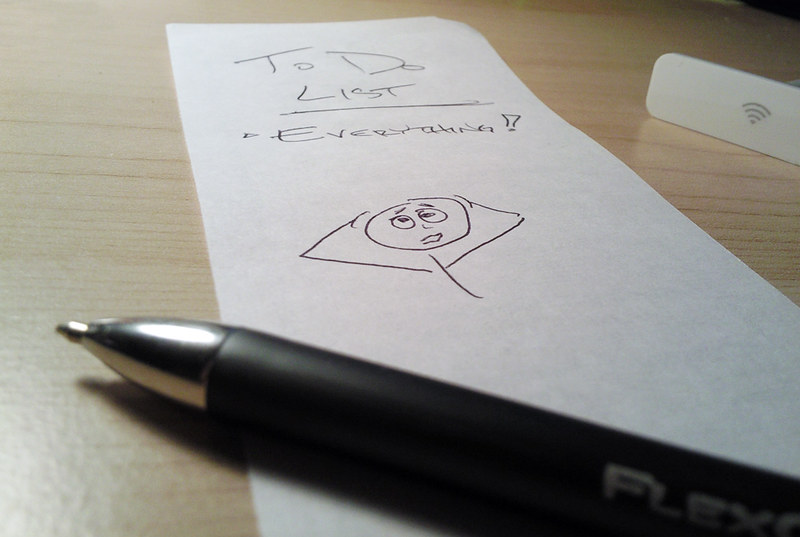

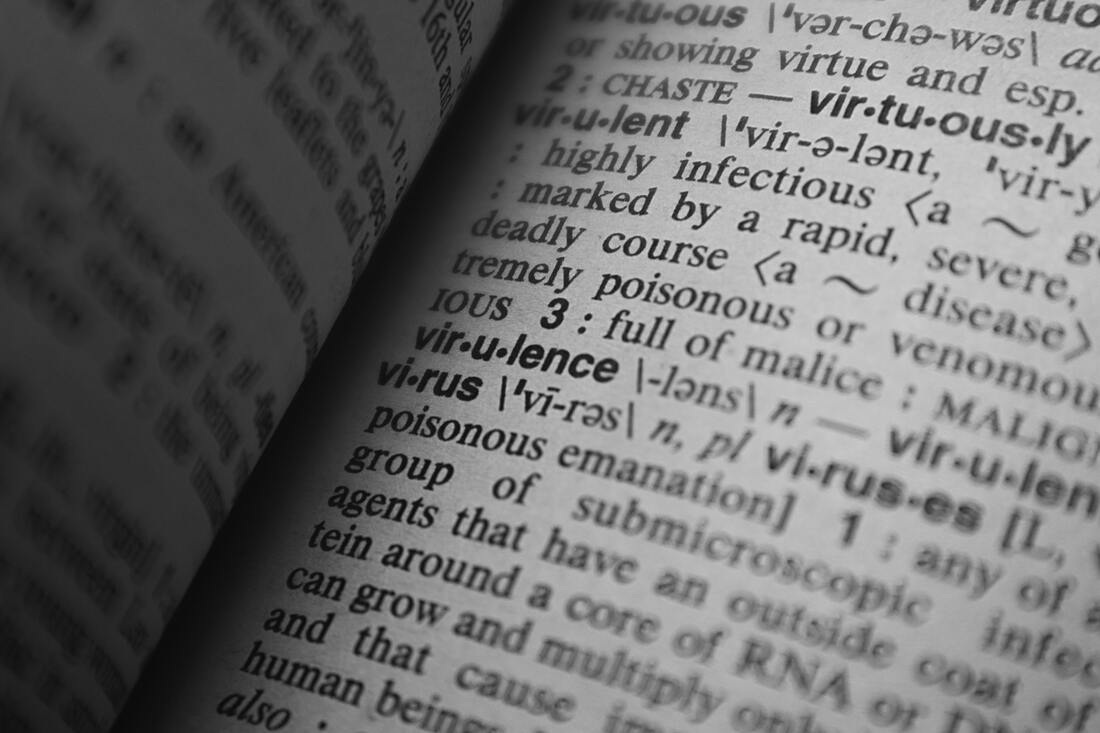
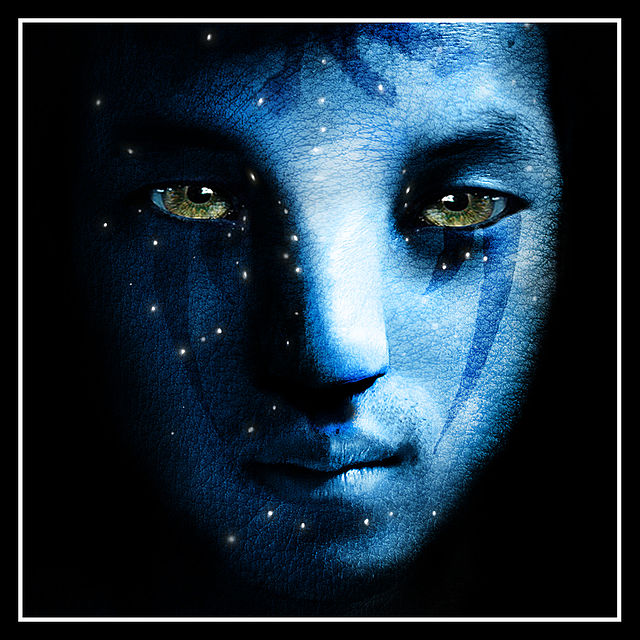
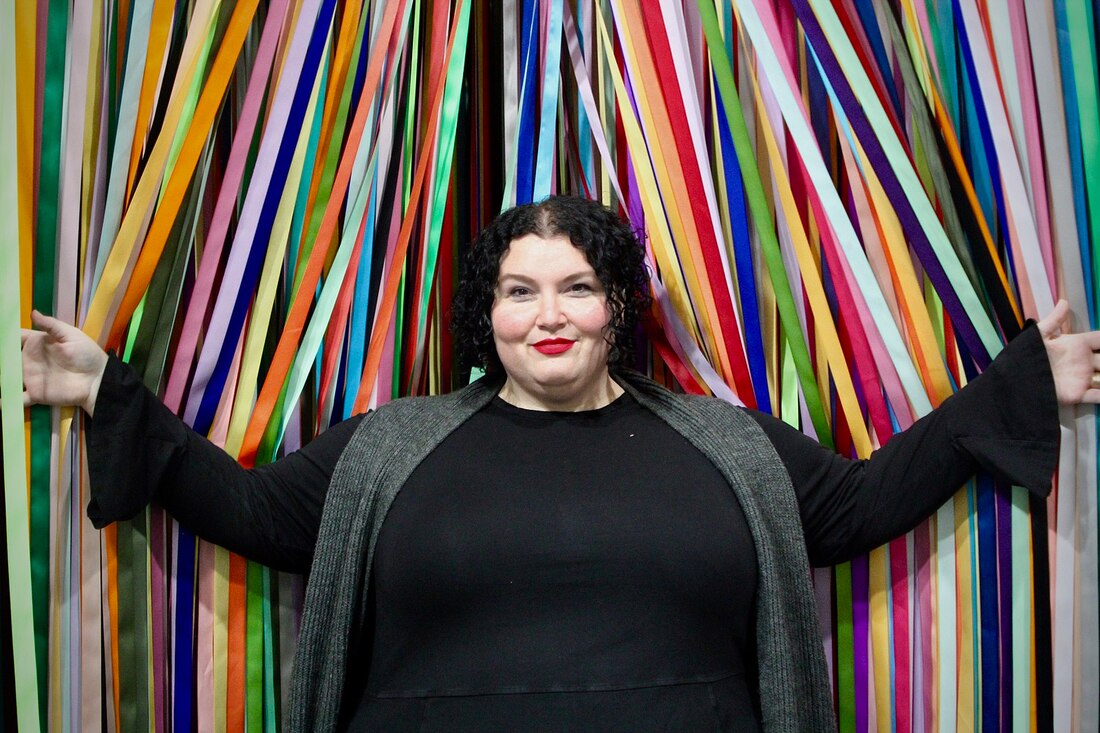
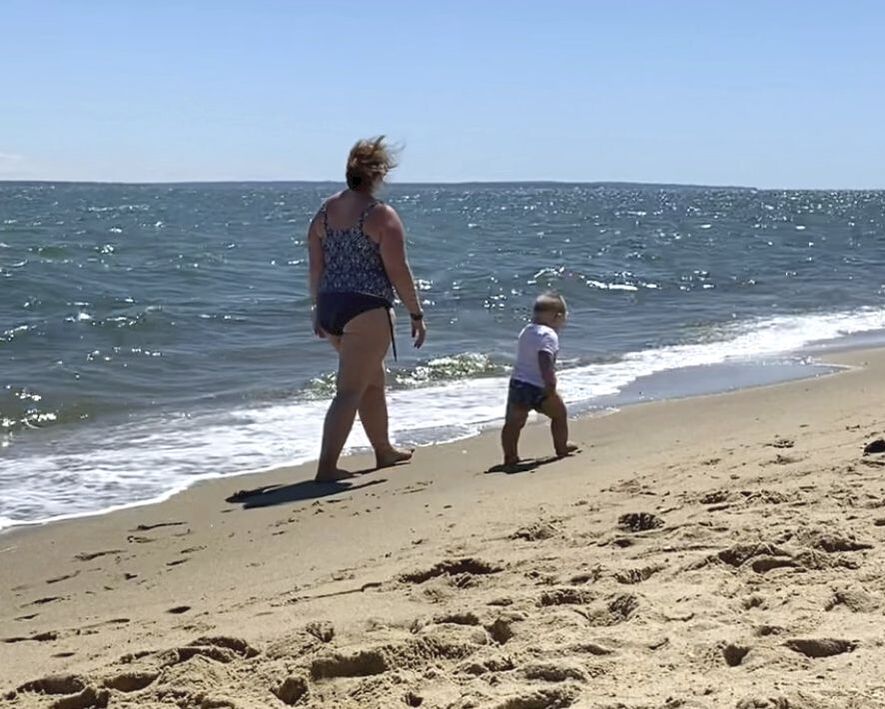
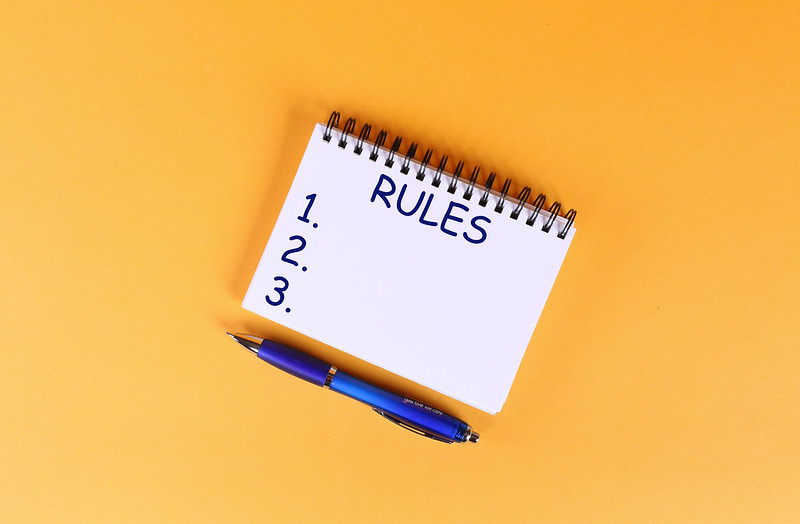
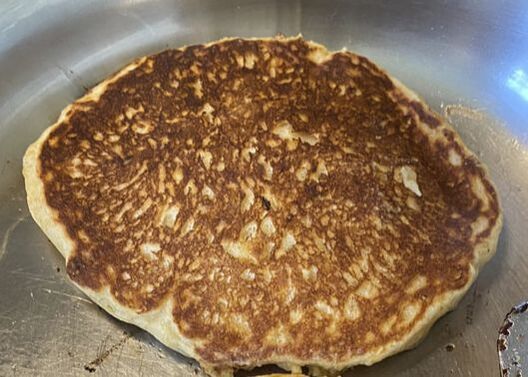
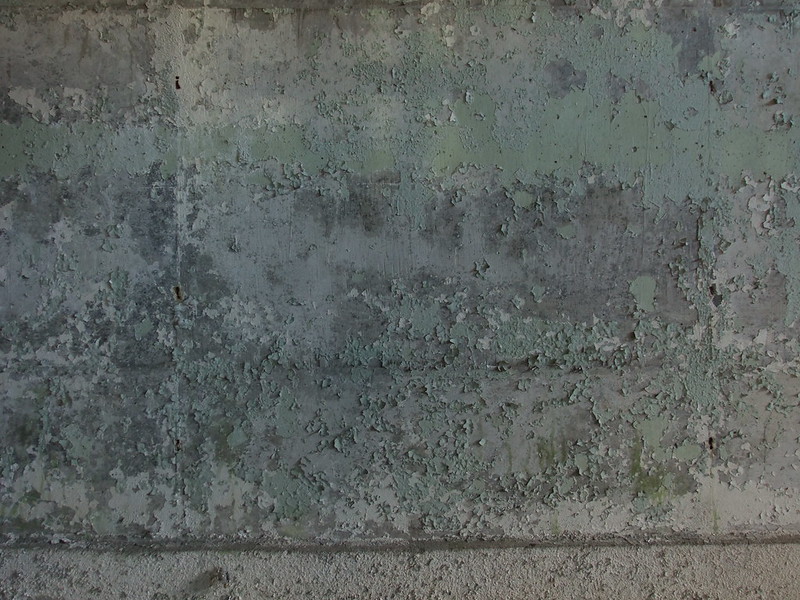
 RSS Feed
RSS Feed